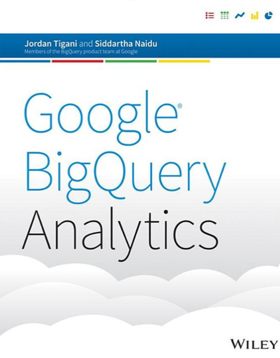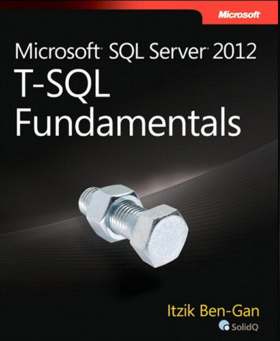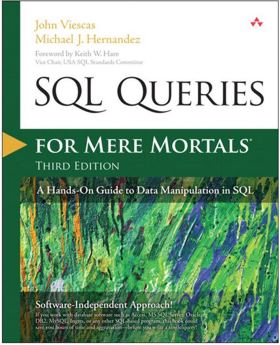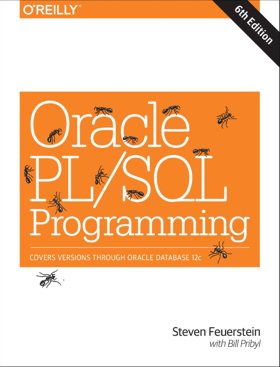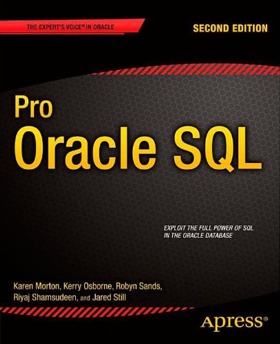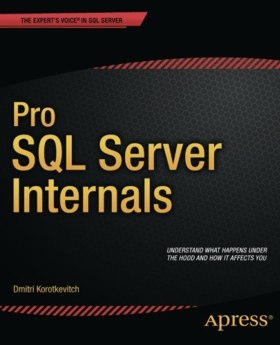| Best Books Of 2014 |
| Written by Sue Gee | ||||
| Tuesday, 06 January 2015 | ||||
Page 2 of 3
Database developers regularly find a great deal to read on I Programmer and there were a six 5-star reviews during 2014 covering SQL, Oracle and MySQL plus this one on Google Big Query: Google BigQuery AnalyticsAuthors: Jordan Tigani and Siddartha Naidu When Google released BigQuery, it sounded interesting. A service that lets you analyze terabytes of data in seconds using SQL-like queries and the processing power of Google's infrastructure – obviously a winner. Knowing whether or not it would make your own particular analysis task easier and faster is a different matter. The authors of Google BigQuery Analytics are well placed to give the inside story of BigQuery; Siddartha Naidu was one of the two original engineers who built the original prototype, and Jordan TIgani is also part of the internal Google BiqQuery team. The book has been written to take you from first using BigQuery all the way through to advanced use and using BigQuery in applications from other systems.
If you’re at all interested in Google BigQuery, this is an excellent book. The descriptions and sample code are clear and easy to understand, and the fact the authors are so involved with the project means they include insights into why things were designed in that particular way. There are useful descriptions of the differences between BigQuery and other tools such as MapReduce, and overall you’ll come out with a much clearer view of the big data scene right now, and how everything fits together. Microsoft SQL Server 2012 T-SQL FundamentalsAuthor: Itzik Ben-Gan Itzik Ben-Gan is well-known for explaining advanced SQL concepts in a clear manner, often providing useful tips along the way. His aim here is to explain the basics of T-SQL while incorporating good programming practices. Although the code relates specifically to SQL Server 2012, much of it is applicable to earlier and later versions, helpfully Itzik Ben-Gan typically identifies the version association with a T-SQL feature. There are some advanced areas included but they are separated out and can be read later.
This book tackles this objective of introducing T-SQL with helpful discussions, relevant example code, useful diagrams, and plenty of related tips. Each chapter ends with a series of exercises and worked example solutions that will enable you to check and expand further on what has been learned. Since the book is introductory, in many ways it is version independent. Although aimed at SQL Server2012, most of it is applicable to earlier and later versions. In addition to being instructive, the examples provided can be used later to check syntax, and can also form the basis of your own code. If you’re new to T-SQL, I can certainly recommend this very instructive book. SQL Queries For Mere Mortals, 3eAuthors: John Viescas and Michael J. Hernandez While it may sound as though it's aimed at people who don't know SQL, in reality there are topics in this book that would be useful no matter how good you are at writing SQL code. If, however, you don’t know much, if any, SQL this is an excellent book.
The book has six sections, starting with some scene setting in Part I Relational Databases and SQL. Part II is on SQL Basics and then we explore Working with Multiple tables in Part III. Summarizing and Grouping Data is the topic of Part IV and in Part V we get to Modifying Sets of Data. The last part of the book, new in this edition, and is perhaps the most useful as it looks at Solving Tough Problems. Even if you already know SQL, this section makes really interesting reading. I think this is an excellent book. The examples are really clear and show both traps you can fall into and how to avoid them. The authors avoid relational jargon while staying within the rules, and help you think more clearly about how to write good SQL. Oracle PL/SQL Programming, 6eAuthor: Steven Feuerstein with Bill Prybil Steven Feuerstein’s classic book on Oracle PL/SQL programming needs little or no introduction to the Oracle developer community. It would be unusual to find a bookshelf belonging to an Oracle developer without this book on it, and it deserves its place, having been probably the best book on the subject for the last twenty years. This 6th edition brings the book up to date with Oracle Database 12c Release 1.
This is no light read, either in length or in content. It’s not a tutorial by any means, but Feuerstein explains the inner workings of PL/SQL with lots of code examples. He has an excellent writing style and uses humor and an easy chatty style to make the process of understanding PL/SQL as painless as possible. The changes from the previous edition are quite specific and unless you’re struggling with understanding them in particular, you may be happy with your fifth edition. If you don’t have an earlier edition and you want to program PL/SQL, this is the book to buy. Pro Oracle SQLAuthors: Karen Morton, Kerry Osborne, Robyn Sands, Riyaj Shamsudeen, Jared Stil Audience: Oracle developers
Reading the book and working through the examples should really improve your SQL. The key to getting the best out of Oracle is expert use of SQL execution plans, and this book gives you the tools to work with them.
The final selected database book almost didn't make it as Ian Stirk, who always wants there to be some room for improvement, initially only awarded a rating of 4.9. However he later pointed out it was the best book he had read during 2014 and so it certainly deserves inclusion in this round-up. Pro SQL Server InternalsAuthor: Dmitri Korotkevitch Understanding the fundamentals of SQL and SQL Server is relatively easy, however it soon becomes necessary to gain a deeper understanding in order to provide better solutions and improved performance. This book provides an in-depth look at a wide range of SQL Server topics from an internals and performance related perspective.covers various versions of SQL Server, from 2005 to 2014, with version specific information given where appropriate and has 35 chapters divided into eight sections.
It assumes some background knowledge of SQL Server, perhaps a few years SQL development. It is relatively easy to read, with excellent explanations, good use of screenshots, and detailed example code throughout to back up the assertions made. There are good links between the chapters, and to further information available on the web. Most chapters end with a very useful, and relatively long, summary. Having a single author undoubtedly contributed to a more consistent quality of explanations, and prevented duplication. The book is wide-ranging, with coverage from User-Defined Functions to High Availability options. This is matched by its great detail, including examination of execution plans and physical database page/row content. There is no filler in this book, it is all useful detail. Throughout there are useful incidental tips provided. The author provides a balanced approach in his discussions, giving both the pros and cons to each problem’s solutions. There were few errors, mostly relating to editing, but nothing too distracting. This book will take your level of SQL Server internals/performance understanding from say level 4 to level 9 (out of 10). I learned something new in almost every chapter, and there are lots of chapters! I started this review wondering if we needed another SQL Server internals book, I’ll finish it by saying this is the best SQL Server internals/performance book I’ve read, I congratulate the author, Dmitri Korotkevitch, on his industry. <ASIN: 1118824822> <ASIN: 0735658145> <ASIN:0321992474> <ASIN:1449324452> <ASIN:1430262206> <ASIN:1430259620> |
||||
| Last Updated ( Wednesday, 27 February 2019 ) |
